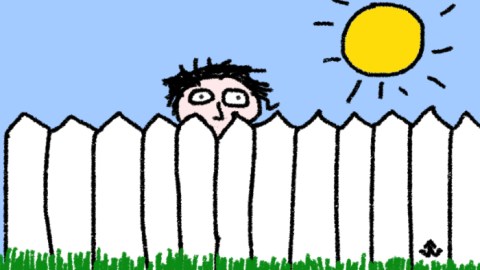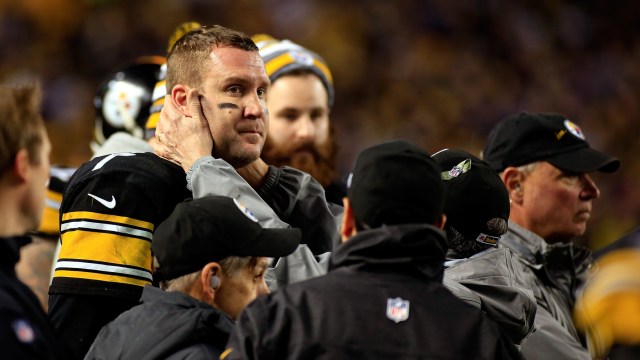White People Problems

Ta-Nehisi Coates’ painful and beautiful new book Between the World and Me makes one thing plain to this “white” reader at least. There are (at least) two Americas. The one in which I grew up (in suburban Maryland) and the one in which he grew up (in inner-city Baltimore). These two realities are irreconcilable. To suspend disbelief in one is to disbelieve the other. Coates calls the reality I’ve known all my life “the Dream,” shorthand for the American Dream of white picket fences, well-groomed lawns, and the well-groomed white people who maintain and patrol them. For Coates, “whiteness” is a fiction also, one into which former outsiders like my Jewish and Italian ancestors consciously assimilated (changing names, hairstyles, accents, and customs as needed) in order to enjoy the benefits of full participation in the Dream.
I’ve known this, intellectually, since college at least. Knowing it viscerally is another matter. If you live in a country in which you are the beneficiary of systemic inequality, what can or should you do to remain aware of that fact? What can or should you do to change it? The realities of economic and racial injustice in America are suffocating, and not knowing where to begin, most of us just turn away. But this isn’t the Matrix. Should you wish to face the ugly reality, there’s no red pill you can swallow.
In the late ‘90s I volunteered at Living Stage, a “social outreach” arm of Arena Stage, in Washington, D.C. Founded in the late ’60s as an engine of the social revolution that was supposed to end racism and inequality in America, it had become by that time localized and limited in its aspirations, running socio/psychotherapeutic improv workshops for inner-city schools, women’s shelters, and rehab clinics. In the post-Reagan era, “social outreach” had become a secondary, “charitable” function of the kinds of middle class organizations Living Stage and its comrades had once fought to overthrow.
Anyway, I was one of two white volunteers, both named Jason. For a short while there was also a white intern, a college girl from the Midwest. Weirdly, the artistic director was also white, a ponytailed relic from the original cast whose bitterness at the ironies of history was palpable. The rest of the company was black or Latino/a. Nobody knew quite what to do with me, so I mostly took notes.
At one point there was a weeklong intra-company workshop about racism in which we learned that as beneficiaries of white privilege we (white people) were racist by extension. This reduced the intern girl to uncontrollable sobbing. I don’t think she lasted long after that. I imagine her father’s private jet touching down at Dulles to whisk her away, back into the comforting presence of her horses (she actually did own horses, plural). The other Jason nearly got himself physically harmed by a furious company member for admitting (confession being a key aspect of this kind of workshop) that he didn’t find black women attractive.
One time I was allowed to participate in a workshop with inner-city teens. I remember almost nothing about the experience beyond the fact that after about 10 minutes a company member gently took me aside to tell me that my “energy” was off and that I should sit down. I had been paralyzed with fear, not of the improv or of its participants but of my own outsider status — my sense of not belonging there. What the hell did I think I was doing? Who the hell did I think I was in this context?
He was right. My energy was off. Years later I would again experience this same sense of cultural and personal dislocation, this time as a seventh grade teacher of (mostly) inner-city kids in a Brooklyn public school. For two years in this role I struggled, not to “keep control” of the classroom (because I didn’t believe it was my job to “control” it, exactly), but somehow to inspire the kids and share with them my love of literature and language. A little bit Dead Poets’ Society, a little bit Stand and Deliver, maybe. We had our moments. But for the most part my classroom was utter chaos and I vacillated between calm, rational, hopeless entreaties to order and total screaming meltdowns. With very few exceptions, I did not understand my students and they did not understand me.
What exactly was I trying to achieve in these clumsy encounters with the other America? Both at Living Stage and as a schoolteacher, I’m fairly certain I went in without any grand imperialist notions. I didn’t believe that the other culture was broken or “uncivilized” or that if it was, I was in any position to fix it. I think I believed that these experiences, over time, would tear down (or at least perforate) the wall that separated my reality from theirs. But they didn’t.
As I write this, Ferguson, Missouri, is under a state of emergency because police shot Tyrone Harris, Jr., an 18-year-old who may or may not have been shooting at them first. Reading an article in The New York Times on the topic this morning, I was struck by how careful it was about not placing the gun in Harris’ hands, about qualifying everything with “police claimed” and “a bystander said.” This is just careful reporting, but it occurred to me that we’ve arrived at a point where the justified distrust black communities have felt toward U.S. law enforcement since — forever — has begun to spill over inner-city borders, raising the question of whether law enforcement is even possible in the absence of public trust. Even always-on police body cameras with footage streamed live to the cloud would have to be monitored by someone. By whom? State police? The feds? A live television/internet audience?
Coates’s book is written as a letter to his 15-year-old son. It’s available for the rest of us to read wherever books are sold, but this epistolary trope makes reading it an act of voyeurism. I believe Coates is fully aware of this. The white faces peering over the picket fences are a constant presence at the book’s margins. I believe Coates wants “white” America to see and at the same time to know its distance from the realities he describes. Throughout his life (as he describes it to his son) you feel him trying to perforate the bubble that separates the two Americas, repeatedly giving up in rage and frustration as the bubble triumphantly reseals itself. And here he is with this book, trying again in this sideways sense if not to cure the cancer, at least to describe it accurately.
It’s been well over a decade since that seventh grade classroom spit me out. Lately, I’ve been thinking of volunteering to teach writing in a prison. I know, I know. But the bubble’s still there. What else you gonna do?
@jgots is me on Twitter





